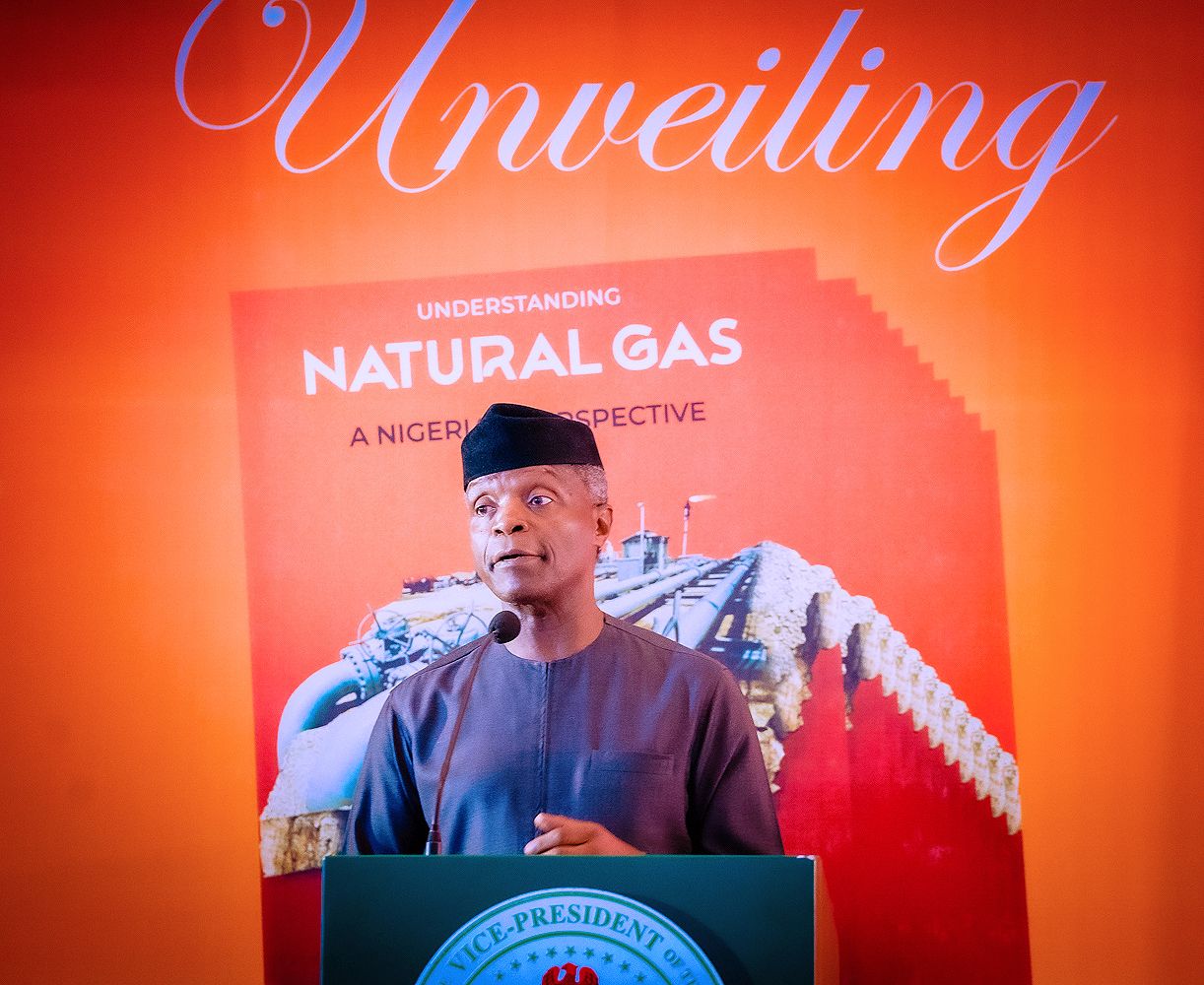Book Launch Of “Understanding Natural Gas: A Nigerian Perspective” On 27/04/2023
SPECIAL REMARKS BY HIS EXCELLENCY, PROF. YEMI OSINBAJO, SAN, GCON VICE PRESIDENT OF THE FEDERAL REPUBLIC OF NIGERIA AT THE BOOK LAUNCH OF “UNDERSTANDING NATURAL GAS: A NIGERIAN PERSPECTIVE” BY DAVID IGE, PHD, AND DAPO AKINOSUN, SAN, IN ABUJA ON THE 27TH OF APRIL, 2023
PROTOCOLS
I will like to start by saying a huge congratulations to David Ige, PHD, and Dapo Akinosun, SAN, on the publication and presentation of this major contribution to our existing body of knowledge on such a vital subject. I think this book speaks eloquently to the quality of thought abundant across Nigeria. And this is an important point to make, especially because of the criticism that there is a paucity of homegrown research and local knowledge production about the issues that affect our own country at different levels.
But I believe that part of what we must continue to strive to do is connect expert knowledge to policy making and implementation, and this equally entails the strengthening of our publishing architecture and knowledge market. Congratulations again gentlemen, and thank you for your service in this regard.
In recent months, natural gas has taken center stage in global geopolitics, with the war between Russia and Ukraine serving as a poignant reminder of the complex web of energy security concerns that nations and regions face.
As gas prices skyrocketed, countries were forced to confront the vulnerabilities of their energy supply strategies, giving rise to urgent calls for re-evaluation and diversification.
The European Commission has proposed an ambitious plan to reduce the region’s dependence on Russian gas by at least two-thirds by 2030. The US has also supported the diversification efforts of its European Allies by approving additional exports of liquefied natural gas (LNG) to Europe, it has signed deals with several countries to develop new energy infrastructure, and accelerated the deployment of renewable energy technologies.
Japan, an island nation with few domestic energy resources, has increased its imports of LNG from other countries, such as the US and Australia, to reduce its dependence on a single source of supply, and has also invested in the construction of floating offshore wind farms, as well as promoting the use of solar power. The landscape of the global energy market is drastically being redrawn.
The key question is: how does Nigeria respond? How do we position ourselves from the vantage point of a nation with abundant energy resources working assiduously to diversify its energy sources, develop domestic resources, enhance energy efficiency, and strengthen infrastructure?
Our nation, like others around the world, must navigate this challenging transition wisely and with our economic future in clear perspective.
Beyond the present risks of price volatility and geopolitical tensions, the reality of climate change and the increasing urgency for cleaner energy sources is becoming more apparent. Increased temperatures, changing precipitation patterns, and more frequent extreme weather events, are all having serious consequences for ecosystems, agriculture, water resources, and human well-being across Nigeria and the entire Sahel region.
Consequently, the push to phase out fossil fuels quickly and discourage new investments in related projects is ramping up. And we must take these calls to action seriously, not just for the sake of our environment, our economy, and our people, but also from the point of view that our own development depends on how quickly and effectively we can address our energy poverty situation.
This will involve faithful implementation of our Energy Transition Plan, which also involves our implementation of our Decade of Gas proposals. And we must reassure our global compatriots in the Paris Agreements and other agreements that the use of gas as a transition fuel will not significantly derail our commitment to carbon-negative growth.
Nigeria’s energy transition plan attempts to chart an energy transition pathway which has as its bedrock the development of renewable energy, specifically solar. The plan is to develop 250 Gigawatts of solar capacity by 2060. The plan outlines our decarbonisation strategies in the areas of power, oil and gas transportation, etc.
It also mitigates against medium to long-term job losses in an industry that has dominated the economy for decades. It recommends the role of gas as a transition fuel, to balance large influxes of solar power on the grid, it is also cheaper, and relatively a clean option for base load power for industry, as we watch the cost of solar batteries plunge.
There are also practical ways in which gas, especially propane, will bridge the gap before the full use of renewables is commercially practical. Propane is a much lower carbon emitter than diesel or petrol. Propane (LPG) is also already in use for clean cooking stoves.
There are many practical short-term uses of gas that are made more attractive because of its availability and relative cleanness compared to other fossil fuels. The road ahead is both challenging and full of promise.
We must embrace the opportunity to harness our vast natural gas resources responsibly and judiciously, while simultaneously charting a path towards a cleaner, greener future. We have the potential to become a global leader in the energy transition, and the time to act is now.
We can indeed build a more secure, sustainable, and prosperous future, for ourselves and for the generations yet to come.
Let me again commend the authors of this book “Understanding Natural Gas, a Nigerian Perspective.” This is an important book, it is possibly one of the few technical texts that has both a strong policy and legal perspective and is also simple to read. Well done indeed.
Thank you all very much for listening.








